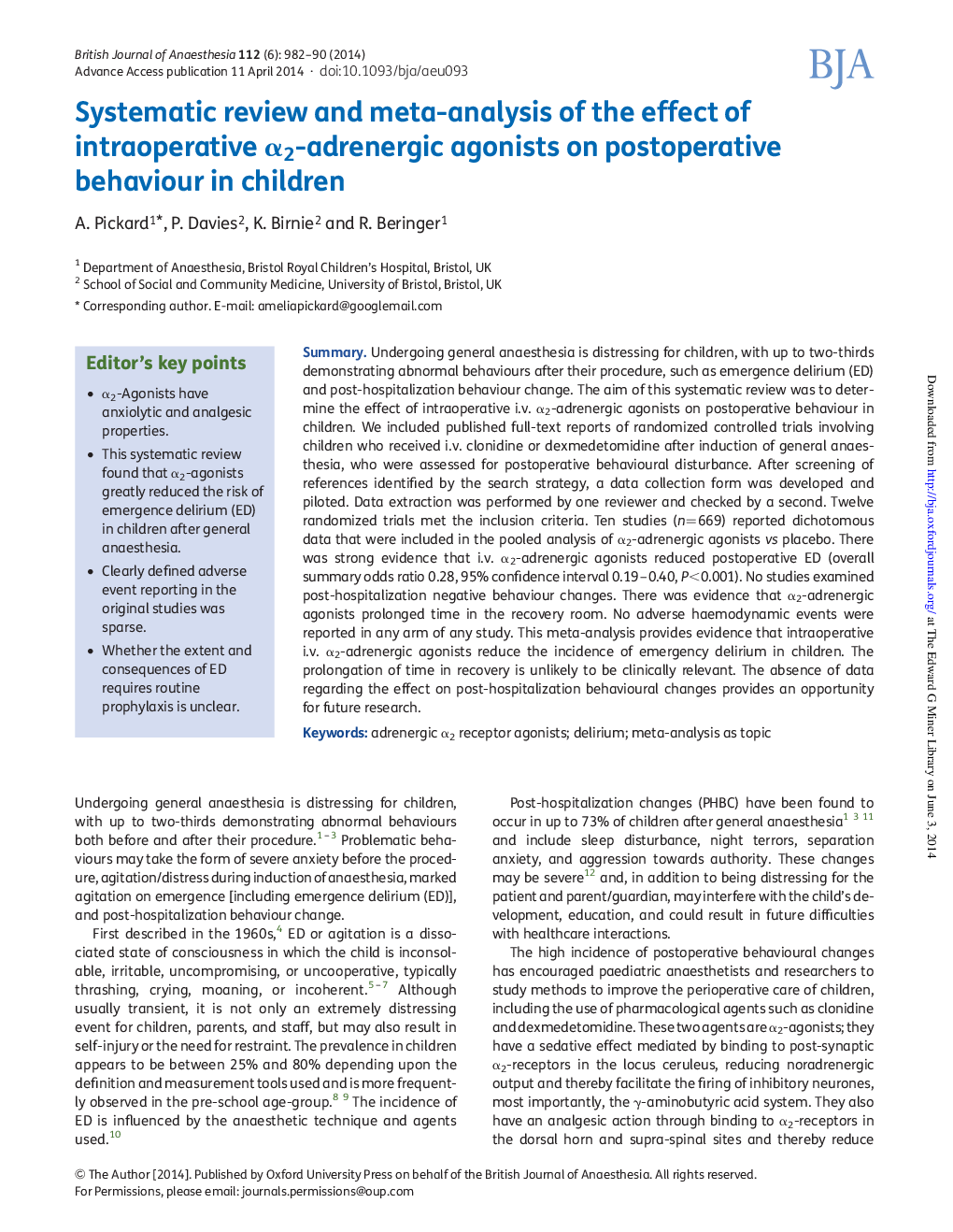| Article ID | Journal | Published Year | Pages | File Type |
|---|---|---|---|---|
| 8932757 | British Journal of Anaesthesia | 2014 | 9 Pages |
Abstract
Undergoing general anaesthesia is distressing for children, with up to two-thirds demonstrating abnormal behaviours after their procedure, such as emergence delirium (ED) and post-hospitalization behaviour change. The aim of this systematic review was to determine the effect of intraoperative i.v. α2-adrenergic agonists on postoperative behaviour in children. We included published full-text reports of randomized controlled trials involving children who received i.v. clonidine or dexmedetomidine after induction of general anaesthesia, who were assessed for postoperative behavioural disturbance. After screening of references identified by the search strategy, a data collection form was developed and piloted. Data extraction was performed by one reviewer and checked by a second. Twelve randomized trials met the inclusion criteria. Ten studies (n=669) reported dichotomous data that were included in the pooled analysis of α2-adrenergic agonists vs placebo. There was strong evidence that i.v. α2-adrenergic agonists reduced postoperative ED (overall summary odds ratio 0.28, 95% confidence interval 0.19-0.40, P<0.001). No studies examined post-hospitalization negative behaviour changes. There was evidence that α2-adrenergic agonists prolonged time in the recovery room. No adverse haemodynamic events were reported in any arm of any study. This meta-analysis provides evidence that intraoperative i.v. α2-adrenergic agonists reduce the incidence of emergency delirium in children. The prolongation of time in recovery is unlikely to be clinically relevant. The absence of data regarding the effect on post-hospitalization behavioural changes provides an opportunity for future research.
Keywords
Related Topics
Health Sciences
Medicine and Dentistry
Anesthesiology and Pain Medicine
Authors
A. Pickard, P. Davies, K. Birnie, R. Beringer,
